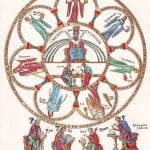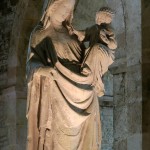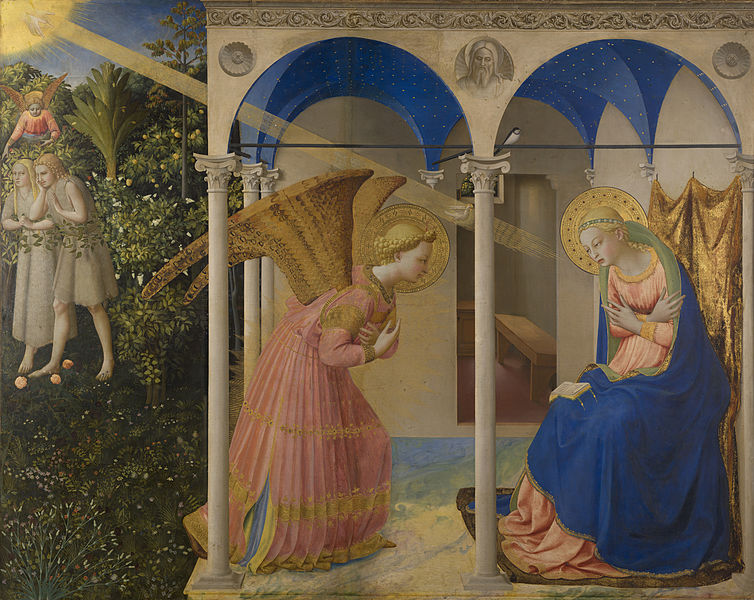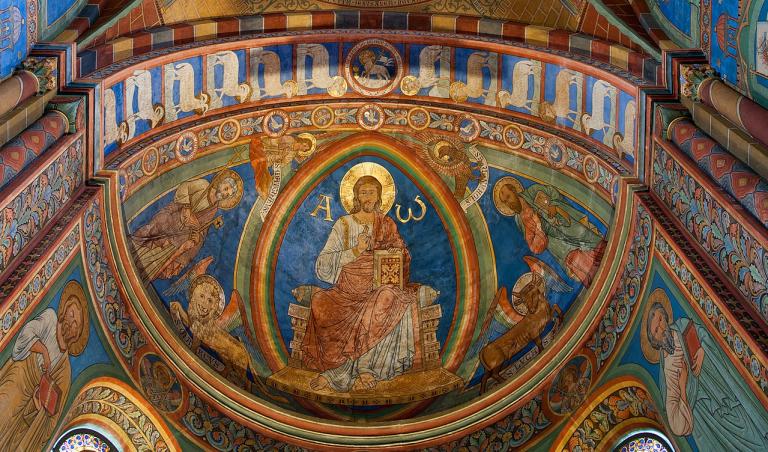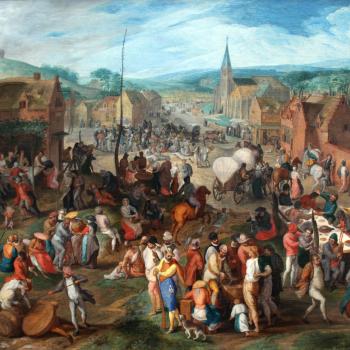David Russell Mosley
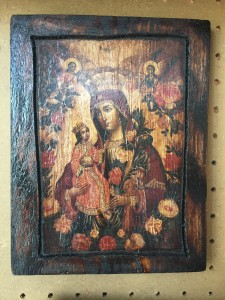
Advent
17 December 2016
The Edge of Elfland
Hudson, New Hampshire
Dear Readers,
Christmas day is now but 8 days away. And as we near, I am trying, and often failing, to turn my mind to the truth of the Incarnation, the reality that was unveiled that day God became a human being and everything we thought we knew changed. There is, of course, another important person––really a set of important people––that are always remembered around this time of year. I am talking about Mary and her husband Joseph. It is impossible to talk about Christmas and Christ and not talk about his parents. Mary, the Virgin, and Joseph her husband. So, I was a bit surprised when I went on the Patheos Facebook page and came across the post, “The Virgin Birth is Sexist” by Christian Chiakulas. This article was originally posted on Chiakulas’ blog Radical Christian Millennial back in August. Well, the title was enough to intrigue me, so I thought I’d read it.
After finishing the article, I was, of course, left with a rather important question: Even granting every point he made, had Chiakulas actually established that the doctrine of the Virgin Birth is sexist? Had he really proven that to believe Mary gave birth as a virgin (and potentially remained a virgin ever afterward, a point contended by those who accept the virgin birth of Christ) is sexist? His final line seems to get at what he means by sexist:
“How about instead of glorifying her for things that a bunch of men made up about her, we glorify her for being the badass single mother to a bunch of rebellious, activist children who changed the course of human history that she actually was?”
The sexism, the discrimination against Mary in the doctrine of the Virgin Birth is tied completely to the understanding that it isn’t real. This is, unfortunately for Chiakulas, a circular argument. The Virgin Birth is sexist because it was made up by men. How do we know it was made up by men? Because it is sexist. But I do want to take a look at some of Chiakulas’ finer points as to why we shouldn’t believe in the Virgin Birth and why, therefore, it is sexist.
His first point is that it only appears in Matthew and Luke. Neither Paul nor Mark seem to find it important (for some strange reason he leaves out John as well as the other New Testament writers altogether). Now, he allows that perhaps it is in Q (a document whose existence I doubt, as does he). But he fails to realize that if it did exist in Q it then predates all the Gospels and Paul and is therefore more likely to be an inherent part of the story of Jesus. But that aside, its absence in other gospels or texts doesn’t mean it wasn’t important. John does not have many things that are contained in the other gospels, precisely because they are contained in the other gospels. He also ignores the fact that these texts were gathered together, which means the early readers of these texts saw no discrepancy in all this.
Chiakulas also mentions Matthew’s “embarrassing use of Isaiah 7:14.” Basically, he points out that it is only in the Septuagint where we might think Isaiah meant virgin and not young woman. This of course completely misses the possibility of a text, especially a prophetic text, having more than one meaning, particularly if the Holy Spirit is involved. And note, I’m not talking about inspiration of Scripture here, but the inspiration of prophets. Chiakulas seems not to know that it is possible for Isaiah 7:14 to be a reference to Maher-shalal-hash-baz who was born under normal circumstances (a virgin has sex, stops being a virgin, and gives birth to a baby) and can be a reference to the birth of Christ. Chiakulas is beginning with the assumption that Matthew starts with Isaiah 7 and works his way forward to the Virgin Birth. He seems incapable of considering that Matthew started with the Virgin Birth and works his way back to Isaiah 7.
He goes on to lambast attempts to see the siblings of Christ as either the Joseph’s but not Mary’s children or his cousins (again, apparently missing the fact that the word adelph0i could be and was used to mean people who were cousins or not even blood related; Paul frequently uses it in the latter sense). His argument is nonsense simply because it lacks any understanding of how the arguments he disdains actually work or how long they have been working. Not that age guarantees that they are correct, but it isn’t as though the earliest proponents of Mary’s perpetual virginity hadn’t read Mark.
Chiakulas has an interesting line, that he throws away without discussing: “If you can’t see why the idea of the “perfect woman” being a perpetual virgin is crazily misogynistic, there really is no helping you.” Somehow, Chiakulas misses that being a perpetual virgin wasn’t, in itself, what made Mary the “ideal woman” as he calls her, but that she was the Theotokos, the bearer of God. He also, apparently, misses that Joseph, for however long he lived after the birth of Christ (and we have no actual reason to presume he died early on) was also a perpetual virgin (or at least celibate if he was, in fact married before); or that Christ, the ideal Man was also a perpetual virgin. Chiakulas seems to have some kind of axe to grind against celibacy.
Chiakulas then gets on to the heart of his argument. The problem is that Mary’s entire identity is wrapped up in being the Mother of God (a title most people would think a rather important one). He thinks she’s been stripped of her agency by the gospel writers, again ignoring the “Let it be” or Fiat wherein she gives her assent to become the Mother of God. Of course, Mary has agency, of course she could have said no. The fact that she said yes, means that to a certain extent the Incarnation itself turns on a young girl telling an angel that she is willing to deal with the problems related to being a virgin and pregnant.
There’s another line that I can’t help but love related to Mary’s lack of agency, “Considering the deeply patriarchal world Luke was writing in, it’s astonishing that he even gives Mary as much characterization as ‘She [Mary] treasured all these this in her heart’ (2:51).” Chiakulas clearly doesn’t know about texts such as the Proto-evangelium of James or other early texts and stories concerning Mary’s death and assumption into Heaven which has her as the functional leader of the disciples.
For Chiakulas, Mary is to be lauded for being a mother, just not a virginal mother who is the Mother of God, “How about instead of glorifying her for things that a bunch of men made up about her, we glorify her for being the badass single mother to a bunch of rebellious, activist children who changed the course of human history that she actually was?” And I agree, she should be lauded for being a mother of a son who with his friends changed the course of human history. But I agree precisely because I believe she is the Mother of God, the Theotokos.
In the end, I don’t think Chiakulas has an argument. Which is unfortunate because I think Mary has been used to uphold sexism at times. I think there are real arguments to be made, but precisely because of who Mary is, the Blessed Virgin, who is full of grace as the angel told her, the Theotokos. She is the new Eve whose Fiat overcomes the sin of the Garden and she gives birth to the new Adam who conquered the death that entered through the first Adam. She is absolutely a badass mother (whatever that actually means). But she is precisely because she is the Mother of God and this is not sexist, this is not reductive, it the revelation of humanity, of the Church as the body of Christ. The doctrine of the Virgin Birth is not sexist. It is truth and we Christians ignore it at our peril.
Sincerely,
David

